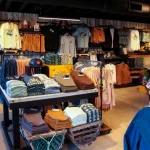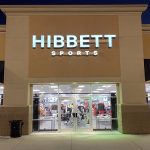The old adage about the sporting goods industry weathering tough economic times got a real test last week. A first blush review of Wall Street results last week reveals that the outdoor industry did fare better than the market as a whole and many other sectors, but feedback from industry executives suggests that the tough economy and tight credit are not having a balanced effect of retailers.
As highlighted in the charts below, the Dow Jones Industrial Average ended up fairly flat against the previous week as Wall Street recovered late in the week after a tumultuous start. The S&P 500 managed to eke out a slight gain. Looking at the BOSS index of sporting goods industry stocks, the industry posted a 2.0% increase in value over the last week, led by strength in softgoods vendor stocks and specialty retail, tempered a bit by the hardlines business, which fell for the week.
Cabelas, Orange 21, Volcom and Under Armour led all gainers for the week, and were joined by Columbia and Lululemon in posting double-digit stock share gains for the week.
Industry executives responding to the latest SportsOneSource SGB Question survey regarding the impact of the economic challenges facing the market provided a range of views from “no impact” to “were feeling it already.” The mood coming out of the most recent trade shows reveals much of the same, with larger retailers that rely on the middle to the lower end of the market experiencing more pain than those in the specialty markets.
When responding to the SGB Question about the impact of the recent Wall Street meltdown on consumer Holiday spending, specialty retailers were clearly more upbeat than their general sporting goods counterparts.
“I think it all depends on geography, said Darren Bush, co-owner of Rutabaga Paddlesports in Monona, WI. “Places that were spanked hard by the housing bubble (Arizona, Florida, etc.) might have a tougher time this year. Places that didnt experience the huge boom may not experience the huge bust. Were confident well have a good fall-winter, having already seen great August and September performance. Were doing the same advertising as before, which I am told will be more effective because of the people who are canceling their advertising and crawling into their shells to ride out the storm. Im optimistic.”
Outdoor specialty and running specialty retailers that have so far dodged the impact of rising gas prices and credit woes may finally see the investor class that dominates their consumer base pull back in response to shrinking 401(k) plans and other investments.
“It has and will impact overall consumer confidence and their willingness to set aside discretionary dollars on non critical activities and wants versus needs,” said Kenny Ballard, CEO of Kelty, in response to the SGB Question. “Value and quality will be even more critical in the purchasing decision making process as well as reliance on core- known consumer brands.”
Other key executives on the brand side had indicated that despite already tight inventories, retailers were starting to cancel goods for the fourth quarter in anticipation of a weaker Holiday selling season. Responses from some larger retailers appeared to indicate that they expect consumers to default purchasing toward known commodities and brands. Nike, Wilson, Under Armour, adidas and others are seen as safer bets by the big guys. Fringe brands may get pinched a bit.














